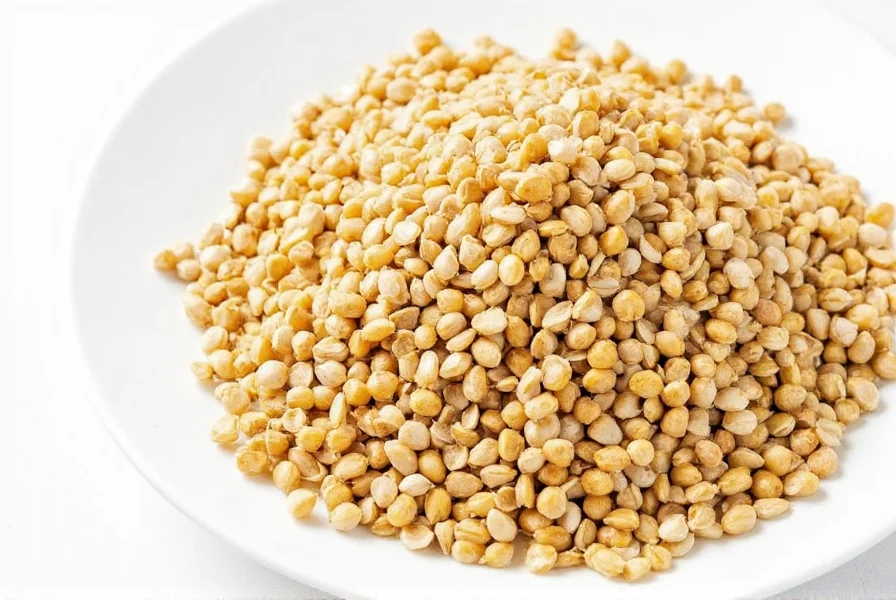Fenugreek (Trigonella foenum-graecum), a plant native to the Mediterranean and South Asia, has been used for centuries in traditional medicine. Today, many people wonder whether this ancient herb can deliver modern weight loss benefits. Let's examine what current research actually reveals about fenugreek for weight management.
What Is Fenugreek and How Might It Affect Weight?
Fenugreek seeds contain fiber-rich compounds like galactomannan and bioactive substances including 4-hydroxyisoleucine. These components may influence weight through several potential mechanisms:
- Fiber content - The soluble fiber in fenugreek may promote feelings of fullness
- Blood sugar regulation - Some compounds may help stabilize glucose levels
- Appetite suppression - Early research suggests fenugreek may reduce hunger signals
- Lipid metabolism - Animal studies indicate possible effects on fat processing
Scientific Evidence on Fenugreek for Weight Loss
While fenugreek shows promise, the scientific evidence for weight loss remains preliminary. Most human studies have been small-scale or short-term.
| Study | Participants | Duration | Key Findings |
|---|---|---|---|
| 2015 Clinical Trial | 60 overweight women | 6 weeks | Those taking fenugreek extract lost 2.3 lbs more than placebo group; reported reduced appetite |
| 2018 Animal Study | Rats fed high-fat diet | 8 weeks | Fenugreek supplementation reduced weight gain by 15% compared to control group |
| 2020 Systematic Review | Multiple human trials | N/A | Noted modest weight effects but called for larger, longer-term human studies |
How Fenugreek Might Support Weight Management
Research suggests fenugreek may contribute to weight management through several pathways:
Appetite Control
The high fiber content, particularly galactomannan, may slow gastric emptying and increase satiety. A 2017 study published in Nutrition Research found that participants who consumed fenugreek fiber reported 14% lower hunger levels compared to the control group.
Blood Sugar Regulation
Fenugreek may help moderate post-meal blood sugar spikes, potentially reducing cravings. This effect appears connected to 4-hydroxyisoleucine, an amino acid in fenugreek that may enhance insulin function.
Potential Metabolic Effects
Some animal research indicates fenugreek might influence lipid metabolism, though human evidence remains limited. These potential effects would likely contribute only modestly to overall weight management efforts.
Practical Usage Guidelines
If considering fenugreek for weight management support, here's what current evidence suggests about usage:
| Form | Typical Dosage | Timing | Notes |
|---|---|---|---|
| Seeds (whole) | 1-2 teaspoons | Before meals | Soak overnight; may cause digestive discomfort initially |
| Powder | 500-1,000 mg | With water before meals | Start with lower dose to assess tolerance |
| Extract supplements | As directed on label | Follow product instructions | Look for standardized extracts containing 50% saponins |
Most studies showing modest benefits used doses between 500 mg and 2,000 mg daily, typically divided into multiple doses taken before meals.
Safety Considerations and Potential Side Effects
Fenugreek is generally recognized as safe when consumed in food amounts, but higher supplemental doses may cause:
- Digestive issues (gas, diarrhea, bloating)
- Maple syrup-like body odor (harmless but noticeable)
- Potential interactions with diabetes medications
- Lowered blood sugar levels (caution for hypoglycemia)
- Possible allergic reactions in those sensitive to legumes
Consult your healthcare provider before using fenugreek supplements, especially if you have diabetes, are pregnant, or take blood-thinning medications. Fenugreek may increase the risk of bleeding and is not recommended during pregnancy due to potential uterine stimulation effects.

Realistic Expectations for Fenugreek Weight Loss Results
It's crucial to maintain realistic expectations about fenugreek for weight loss. Current evidence suggests:
- Any weight loss effects are likely modest (1-3 pounds over several weeks)
- Fenugreek works best as part of comprehensive weight management
- Results vary significantly between individuals
- Long-term effectiveness data is lacking
- It should never replace evidence-based weight loss strategies
For meaningful weight loss, prioritize evidence-based approaches including calorie-controlled nutrition, regular physical activity, adequate sleep, and stress management. Fenugreek might serve as a complementary tool for some individuals, but it's not a magic solution.
Comparing Fenugreek to Other Natural Weight Management Approaches
When evaluating fenugreek for weight loss, it's helpful to understand how it compares to other natural approaches:
- Green tea extract - More research supporting modest metabolic effects
- Glucomannan - Better evidence for appetite suppression
- Protein supplementation - Stronger evidence for satiety and muscle preservation
- Mindful eating practices - Most effective non-pharmacological approach
No single supplement replaces the foundation of healthy eating and regular exercise. Fenugreek shows promise but ranks lower in evidence quality compared to some other natural approaches.
Conclusion: Fenugreek as Part of a Comprehensive Approach
While fenugreek shows potential as a supportive element in weight management, current scientific evidence doesn't support it as a primary weight loss solution. The most effective weight loss strategies remain dietary changes, increased physical activity, and behavioral modifications. If you choose to try fenugreek, do so as part of a comprehensive approach under guidance from a healthcare professional, and maintain realistic expectations about potential results.












 浙公网安备
33010002000092号
浙公网安备
33010002000092号 浙B2-20120091-4
浙B2-20120091-4